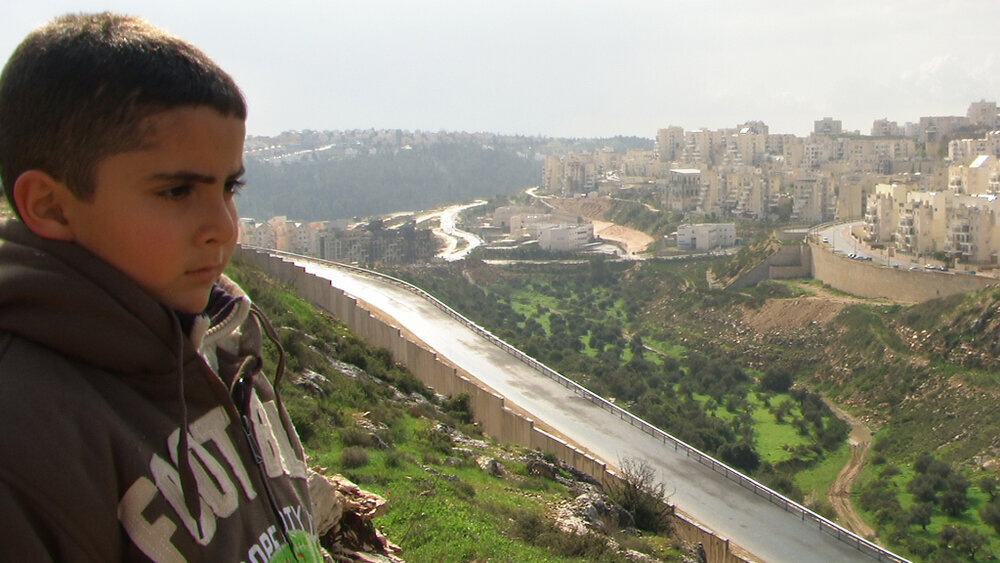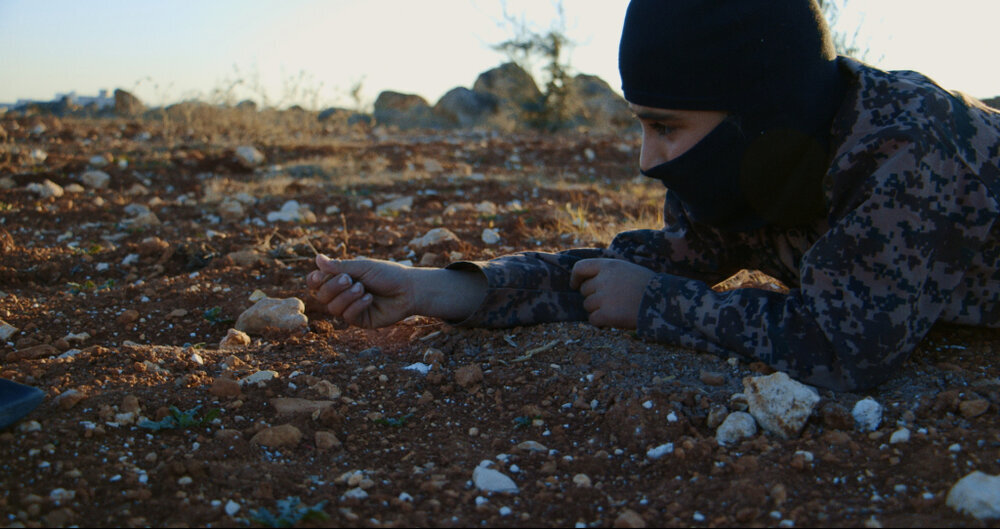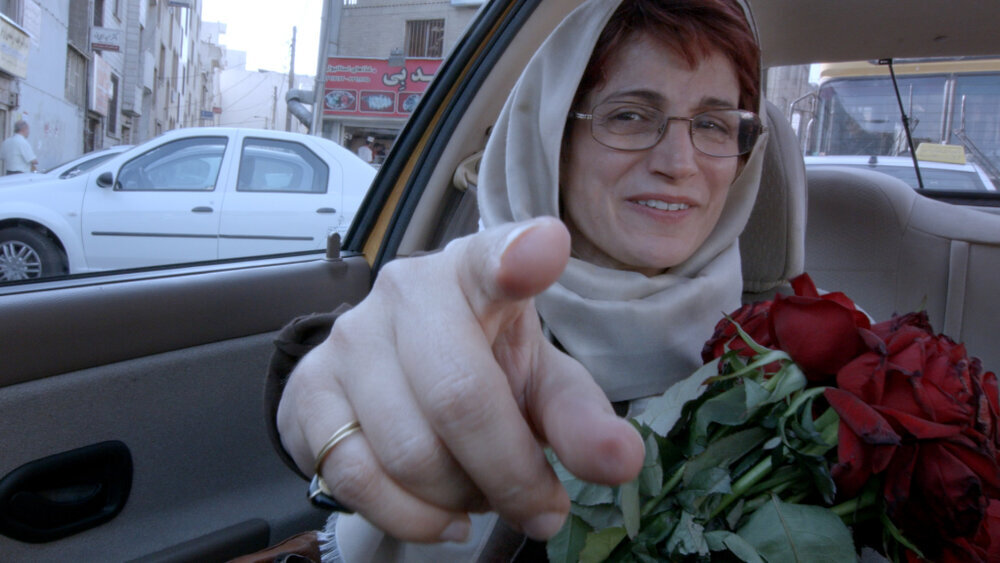March: Docs in Focus III
March: Docs in Focus III, FLMTQ Releases 230-234
During the month of March Filmatique presents Docs in Focus III, a diverse collection of nonfiction works from Finland, Palestine, Syria, Iran, and the United States.
In Concerning Violence, Göran Hugo Olsson approaches the struggle for African liberation through the prism of archival Swedish news footage paired with evocative readings of Frantz Fanon's political philosophy. Occasioned by the birth of filmmaker Emad Burnat's youngest child, 5 Broken Cameras offers a human account of Israeli occupation inside a small Palestinian village; Talal Derki's Of Fathers and Sons similarly explores family relations amid the fraught landscape of war-torn Syria. Peter Nicks's Oakland-set The Force looks at an American police department attempting the task of reform, while acclaimed Iranian filmmaker Jafar Panahi's Taxi probes the limits of art and resistance while offering a slice of life portrait of modern-day Tehran.
Permutations of violence—individual and institutional—pervade these works, positing distinct thematic, cultural, and aesthetic approaches to what is ultimately an urgent global phenomenon. Filmatique's Docs in Focus III series explores political persecution in Iran, the legacy of colonialism in Africa, turmoil in the Middle East, and police brutality in America through the eyes of some of the most exciting documentary filmmakers working today.
//
Concerning Violence, Göran Hugo Olsson (2014)
Concerning Violence, Göran Hugo Olsson / Finland-Sweden-USA, 2014
Angola, Zimbabwe, Liberia, Tanzania, Mozambique, Guinea-Bissau and Burkina Faso—nine African nations were involved in the struggle for liberation from colonial rule in the late 1960's and 70's. Swedish television news captured footage on the ground from a distinctly white perspective. This archival material is assembled alongside passages from prominent and oft-misunderstood Martican philosopher and psychiatrist Frantz Fanon's tome The Wretched of the Earth, which elaborates an ideology of individual and collective decolonization.
Narrated by Lauryn Hill, Concerning Violence boldly interrogates legacies of colonialism, imperialism, and racism in arguments against the African liberation movement, while dismantling facile dichotomies regarding Fanon's political thought. Göran Hugo Olsson's fourth documentary feature premiered at Sundance, Sheffield, CPH:DOX and the Berlin International Film Festival, where it won the Cinema Fairbindet Prize.
5 Broken Cameras, Emad Burnat & Guy Davidi (2011)
5 Broken Cameras, Emad Burnat & Guy Davidi / Palestine-Israel-France-Netherlands, 2011
Emad Burnat lives in Bil'in, a small village in the West Bank. A farmer of modest means, he bought his first videocamera in 2005 to document the birth of his youngest son. This otherwise joyous event happened to coincide with strife in the village, as encroaching Israeli settlements posed an increasingly existential threat to their livelihoods. Over the course of five years and five confiscated, broken cameras, Emad records moments of hope and desperation among his family and community as their ancient olive groves are bulldozed, local protests intensify, and lives are lost.
A testament to the notion that the personal is inherently political, 5 Broken Cameras focalizes the fraught issue of Israeli-Palestinian relations through the experiences of one humble family. Israeli filmmaker Guy Davidi and Emad Burnat's collaborative documentary premiered at the Sundance Film Festival, where it won the Directing Award; Sheffield Documentary Festival, where it won the Audience Award; and IDFA, where it won both the Audience Award and a Special Jury Award. 5 Broken Cameras is the first Palestinian film to be nominated for the Academy Award for Best Documentary Film, and is a New York Times Critics' Pick.
The Force, Peter Nicks (2017)
The Force, Peter Nicks / USA, 2017
In 2002 the Oakland Police Department was subjected to federal oversight, owing to its history of police misconduct and civil rights abuses. Roughly a decade later Sean Whent is hired as the department's chief, with the mandate to come in and clean up shop. He arrives with the best intentions, but soon learns that repairing the trust between the community and those charged to protect them will be no easy task.
Adopting a fly-on-the-wall approach to a department ostensibly dedicated to shedding its corrupt image, The Force offers a nuanced account of institutionalized violence and the obstacles posed to, or the ultimate futility of, police reform. Peter Nicks's second documentary feature premiered at the Sundance Film Festival, where it won Best Director; and the San Francisco International Film Festival, where it won the Golden Gate Award.
Of Fathers and Sons, Talal Derki (2017)
Of Fathers and Sons, Talal Derki / Germany-Syria, 2017
Aged twelve and thirteen, Ayman and Osama live in Idlib province, Syria. Their father, an avowed al-Nusra fighter, is training them to join the global jihad. While older brother Osama seems content with this path, Ayman wishes he could go back to school and continue his education. Nonetheless, both have been swept into their father's lifelong mission of establishing an Islamic caliphate.
Feigning fundamentalist sympathies, Syrian filmmaker Talal Derki embedded himself for two years inside a radical Islamist family to capture the ideology of extremism. After his piercing documentary Return to Homs, Derki's second documentary feature premiered at Berlin, Stockholm, and São Paulo; the Sundance Film Festival, where it won the World Cinema Jury Prize: Documentary; and Munich, where it won the Fritz Gerlich Prize. Of Fathers and Sons won Best Documentary and Best Editing at the German Film Awards, and was nominated for the Academy Award for Best Documentary Feature.
Taxi, Jafar Panahi (2015)






